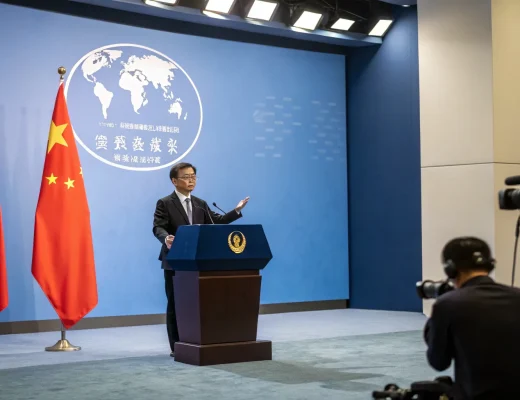The U.S. stock market faced challenges in the first quarter of 2025 as President Donald Trump’s policies and geopolitical strategies significantly impacted global financial markets. The quarter was marked by turbulent market activities primarily influenced by the U.S. trade war and broader geopolitical shifts. While global stocks remained relatively flat overall, notable movements were observed in key sectors and regions.
Major U.S. technology firms faced substantial downturns, significantly impacting the S&P 500 and Nasdaq indices. Gold saw its best quarter since 1986, benefiting from investors seeking safe-haven assets
amid market uncertainty. The U.S. dollar was on course for its worst first quarter since the
Global Financial Crisis, with most currencies rising against it.
Tesla, in particular, saw its share price hit hard due to
public backlash against CEO Elon Musk.
European and Chinese shares, on the other hand, saw considerable gains this year, with European defense stocks soaring, reflecting regional geopolitical tensions. The stock market selloff has exposed a crisis of confidence on Wall Street regarding Washington’s policy direction.
Optimism about tax cuts may not be enough to lift investor spirits. Lisa Shalett, Chief Investment Officer at Morgan Stanley, noted, “The pace and sequencing of policy reform appear to have structurally impaired confidence, impeding growth forecasts.”
Despite hopes for deregulation and tax relief since the election, the anticipated benefits remain elusive.
Market experiences early 2025 turbulence
The cost of extending existing tax cuts is estimated at $4.5 trillion over the next decade, far exceeding the proposed spending cuts of $1.5 to $2.0 trillion. Shalett explains, “Even in the best-case scenario, the implication is limited genuine
progress on the 10-year debt and deficit forecast.”
The administration has suggested tariffs as a revenue solution, but the assumptions are questionable. Trade policy’s unpredictability has exacerbated market concerns.
Shalett warns, “Tariff-revenue offsets are elusive,” earnings expectations have already dropped 3.5% for Q1, with negative revisions expected to continue. As economic conditions evolve, investors
increasingly question whether the United States can continue outperforming other global economies. Slower growth rates, rising debt levels, and geopolitical tensions are among the challenges now facing the U.S. economy.
Analysts are particularly concerned about how these factors might affect investor confidence and market performance in the future. Experts have noted that while the U.S. remains a crucial player on the global stage, its relative advantage appears to be diminishing. This shift has increased interest in emerging markets and other opportunities abroad as investors seek to diversify their portfolios and mitigate potential risks.
The first quarter of 2025 has been a testament to the profound impact of geopolitical decisions on
global financial markets. As investors navigate this new landscape, major global players’ economic strategies and policies will continue to be closely monitored.
Image Credits: Photo by Alesia Kozik on Pexels







